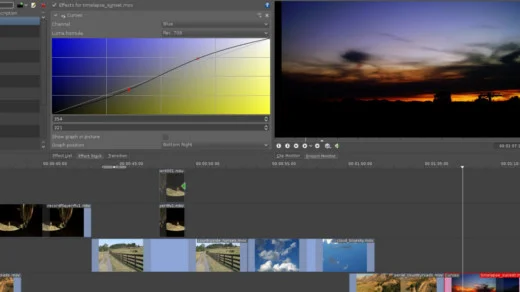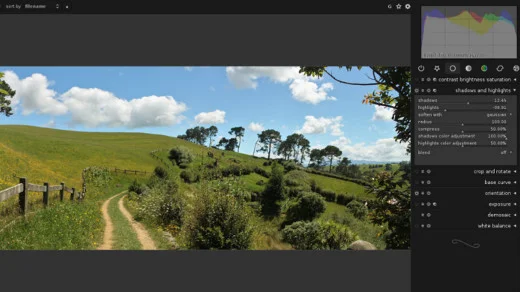Not too long ago, I was working at an art organisation that offered university classes, low-cost membership for facility usage, and just an all-round creative space where people could come and look at and create art. It was nearly my ideal organisation. It was non-profit, creative, and as open as it could be to anyone who wanted to learn.
Where I worked was nearly my ideal organisation. It had its share of problems, though. The director was reported in a recent newspaper article to be paid a six-digit figure yearly, whereas the regular staff gets about one-sixth of that salary. Less than one-sixth of what he made was the paycheck of instructors who taught and interfaced with students on a daily basis, dealing with frantic calls from the Set when a light failed or a gel melted or footage went missing. I do wonder how donors would have felt knowing that a donation as high as $100,000 would not have covered the directory's salary, much less would not have helped students.
There were other problems, too, like poor marketing decisions, bad calls when it came to branching out into areas that don't quite fit into the mission statement, and so on. And there was that old problem that I'd first seen back in my own days as a film student.
When I was in film school, I had been told by my professors that I needed a certain set of tools in order to get through my classes, but none of them told me how I was supposed to afford those tools. I figured that film was, after all, an infamously expensive medium, so that was just part of the curse. Sure we don't use celluloid any more, but if you want to make moving pictures, you have to buy fancy computers, and then you have to buy fancy software (often as expensive as the hardware you just bought).

Muse. Original image by Seth Kenlon, CC BY-SA.
I still remember—usually in a cold sweat—sitting at my desk in my apartment, trying my best to get through projects on a computer well past its prime, using unlicensed software that crashed just often enough to make me think that surely the Stability Bit had gotten misplaced after the meatheads behind all the software cracking had finished their butchering. I remember thinking that something about the scenario just was not right. It's the 21st century, and I was being thwarted because I did not have the money to buy the latest technology.
I thought we were better than that? I thought technology was making the world better. And what's more, I thought it was making the world better for everyone, unconditionally.
And then on my way to work one day, I was riding the N line, reading a trade magazine, and I flipped to an article about how someone at Pixar or ILM was really enamoured by all of the Unix software that was being used there, and how you could render things without actually opening the application that had created the thing itself. It sounded amazing. You mean I can render stuff out and not have my computer crash because the image was too large to fit into RAM?
I missed my stop.

Kdenlive. Original image by Seth Kenlon, CC BY-SA.
And that was what led me down the path of Linux and Unix, and eventually landed me a job as the IT guy at a film school. As the IT guy, it was my job to make purchases, but what I didn't decide was what to purchase. I just filled out the order forms and set everything up when it arrived. But as the guy doing all of that, I did start to notice expenditures that, in the big scheme of things, seemed pretty unnecessary.
Sure, there were the usual things that annoy any IT staff: the demand for faster and better Internet but the steadfast refusal to buy wireless routers that didn't crash daily, that sort of thing. I learned what was to be expected. But what really got to me was how utterly dependent the organization was on closed source software.
It sounds crazy, but I started a campaign to open the school IT department up. Just a little bit, at first: I proposed a small move toward cost-cutting measures, like rather than buying Macs for the admin staff, why not build generic PCs running Linux? Instead of MS Office, why not Open Office? And I even proposed that instead of using up precious (precious to them, not to me) Adobe licenses on marketing and admin, how about training them on GIMP and Inkscape?
Not possible, right? Well, it doesn't have to be. That's what they told me, so it was as good excuse as any, except that during each year that I made that proposal, I was exclusively using that exact toolset to do published design work for international conferences, magazines, websites, art projects, and books.
I get it, the marketing staff has used Adobe for years and would have to re-learn everything to use other tools. The admin staff knew MS Office and would have to re-learn everything to use Open Office. It's hard to learn new tools, and even harder to learn new tools to do something that you already know how to do on something else.
You know what's harder than doing that? Losing your job. That trumps having to learn a new tool, trust me. And sadly, that is exactly what, I just found out earlier today has happened to 20 of the staff (nearly half of their 47 full time employees). This included, with the most unpleasant fruition, the entire marketing team.
Later on, I was leaving for a job higher up the chain of the filmmaking industry and a major crisis came up over licensing. It seemed that Adobe was actually, finally, enforcing their licensing policy (prior to that, they just told the IT staffs to monitor licensing themselves, and threatened us with potential theoretical legal action should any license slip through our vigilant gaze; they never offered remuneration for this service) and the school realized that the 100 licenses they were using was about 80 more than they could actually afford.
An emergency staff meeting was held.
Never one to be swayed by defeat, I proposed yet another bold move toward financial independence from the companies we kept forking money over to. Why not, I said, restructure the entire way we educate? Why not teach students how to manipulate images based on the theory behind the process. Let's talk to them about what "compositing" actually means, let's show them the mathematics behind color values, and how it affects what they see when the apply certain effects. Let's talk to students about the theory of editing footage, what a cut at a certain moment, or to a certain type of shot, might suggest. Let's teach them audio (full-stop... that's a film school joke).
If we teach them the principles of the processes, not just how to use one specific tool, we can teach them anything.
A wise woman from The Sprout Fund once said to me: "All great systems can be reduced to pen and paper." I'd like to take that one step further and say: "All great education can be reduced to open source." We shouldn't be teaching students Brand X, because they might get out of school and make their way into an industry that doesn't use Brand X. We should be teaching students the principles behind why Brand X works and how those same principles work regardless of the tool you are using.
But if we teach using open source tools, aren't we actually teaching them just another Brand X? You may well argue that, and to avoid that, you can have specialized, brand-specific courses to teach the tool for people who feel the need to get trained on a specific thing. All in all, this whole argument barely holds water. To make this argument valid, you also have to say that we should be teaching every possibly movie camera just in case they go out and get a job where Panavision is used instead of Arri.
Another argument is what will students think if they get to school and find GIMP and Lightworks and Darktable and Lightzone and Blender? They would just walk out, surely! Now, last I heard, places of education were supposed to know more than the students arriving at their doorstep. And potentially, they were even supposed to offer enlightenment to the students, encouraging them to learn more about how the world worked, and how to be better at whatever it is they are seeking to do. Education is not meant to structure itself to the expectations of people seeking education.

Darktable. Original image by Seth Kenlon. CC BY-SA.
Back to the story: My coworkers were strongly opposed to any idea that we teach anything but the tools that they felt were the established "standards." To add insult to injury in this bitter stalemate, I left the school to go on to a job working on multi-million dollar blockbusters, not because I was interested in working on multi-million dollar blockbusters, but because the toolchain was Linux and largely (and not, by any stretch of the imagination, entirely) open source software. Were there tools being used that you could learn in film school? Sure, there were a few, but it was never expected, at the entry-level positions, that you already knew the tools. The job cared about your artistic or (depending on which sort of job you were getting, obviously) technical output. Nobody ever talked about what tools you used, they talked about what you had done.
The tools don't get you the job.
The tools don't make the art. The artist makes the art. The tools don't write the software. The programmer writes the software.
Even so, my coworkers wouldn't so much as entertain the idea of changing what they spent money on. And by "entertain," I mean they wouldn't even discuss it. Not even in a "Hey, here's a crazy idea..." kind of way. There wasn't even the theoretical time of day given.
Now, a year and a half later, they have laid off almost half of their staff and don't anticipate holding regular classes next term. They will focus on special intensive programs, cashing in on the quick-overview crash course style of film schooling that seems to be popular in NY and LA these days. You know, the ones that people take for higher prices so they don't have to waste so much time in film school, and then go off and get "real" jobs that have nothing to do with film.
The whole affair makes me sad, because the people involved, at least the ones in the so-called trenches, are my friends. Many have now lost their jobs. And the institution itself has half a century of history behind it. It was a pioneer of independent cinema, once. But now it's just an increasingly lifeless building struggling to find the approval, by way of funding, of an audience to whom they no longer have anything exciting or progressive to say.
And maybe even sadder is that instead of teaching the students to be independent, to think about things in a different way, we educators are teaching people to fail. We are teaching up-and-comers that if something stands in your way, the correct response is to either throw money at it, and if you haven't got the money, then either get out or surrender, but do not under any circumstance deviate from the established course that the ads have proscribed.
Fortunately, for those who refuse to settle for defeat, there is open source, and open source does not demand the latest and greatest hardware. It does not demand that you be of a certain status, and the results are equal to the results of all the other tools out there. Open source software offers unconditional opportunity to everyone, including the ones that are otherwise being told that success is defined by anyone else but yourself.
This article is part of a series called My Linux Story. To participate and share your Linux story, contact us at: open@opensource.com.







13 Comments